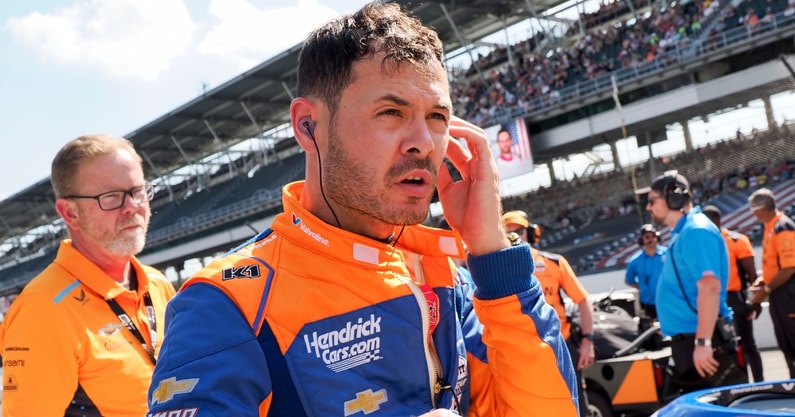NASCAR insiders react to playoff waiver policy change, reveal added wrinkle in rule

Last year Kyle Larson put NASCAR in a tough spot, ultimately granting him a waiver to remain playoff-eligible after missing the Coca-Cola 600. Of course, Larson was in Indianapolis in the Indy 500, racing in that event after a rain delay instead of his full-time gig in the Cup Series.
When that storm came through Indianapolis last May, it was devastating. It made Larson choose between one of the global crown jewels in all of motorsports and a crown jewel in his usual form of motorsports, NASCAR.
This season, NASCAR has updated the waiver policy. Drivers needing a waiver for any reason that isn’t medical (birth of child, family emergency, age restriction included), will lose all playoff points. They can’t earn more after the fact, either.
Drivers who don’t have a medical waiver will enter the postseason, if they make it, with 2000 points. That is the bare minimum you can enter the playoffs with.
So last year when Larson missed Charlotte for Indy, he would have lost all his points. That would have put him in a dangerous position in the postseason. Honestly, a must-win situation in at least one or two rounds.
Jeff Gluck and Jordan Bianchi of The Athletic talked about the new rule change on The Teardown podcast. Last season, the two writers were torn on this issue.
“I thought of you [Jordan] smiling because I thought you must be very happy that NASCAR is trying to ensure that no driver will ever do to them what Kyle Larson did last year,” Gluck said. “So, let’s go through the rule. First of all, a slight tweak to the wording here … not only do you have to start all the championship events that occur in a season, so all the races, all points races. But you must, this is new wording, ‘attempt to complete’ all of the races.”
The fact that drivers must attempt to complete all of the races is an added wrinkle in 2025 and beyond.
Top 10
- 1
New addition to 1-seeds
Updated ESPN Bracketology
- 2
FSU, Clemson approve
ACC lawsuit settlement
- 3
Lagway backs Napier
Hot seat is disrespectful
- 4New
NFL Mock Draft
Shedeur Sanders stock dropping
- 5
Deal falls through
UNC, Hard Knocks a no-go
Get the On3 Top 10 to your inbox every morning
By clicking "Subscribe to Newsletter", I agree to On3's Privacy Notice, Terms, and use of my personal information described therein.
Gluck continued, talking about the ramifications of the new rule. NASCAR will have a strong negotiating position with the waiver policy now.
“You could win the regular season title, it won’t matter,” Gluck said. “You could win, seven races, you won’t get playoff points for any of them. Because if you miss a NASCAR race and you need a waiver because of it and it’s not for medical reasons, you are screwed.”
Then Jordan Bianchi chimed in. Believing NASCAR has every right to protect itself this way, he was fine with the change.
“I think it’s a good rule, I have no problem with it,” Bianchi said. “I think if you are, if you’re committed to this, then you need to be committed to this. If you want to go moonlight somewhere and go do some stuff, that’s great. But at the end of the day, you need to be here for what you signed up for. Especially in instances when you sit there and tell us, ‘Oh you’re the priority, oh you matter most to us. Oh, at the end of the day, we want to be there for you and we’re going to be there for you.’ And then when push comes to shove you’re like, ‘Nope, sorry, got another date. Sorry.’ Doesn’t work like that, I have zero issues with it.”
The NASCAR waiver situation got weird last year. It was obvious that officials and executives felt slighted by Larson and Hendrick Motorsports. This season, everyone knows what the deal is.